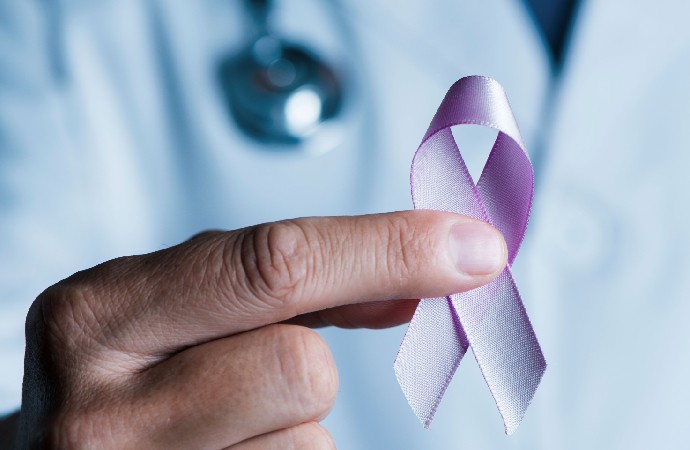Cancer Preventive Screening and Early Detection
Catching Cancer Early Saves Lives
Learn about your risks, get screened, and encourage loved ones to do the same. Early detection could save your life—and the life of someone you love.

The earlier a disease is diagnosed, the more likely it can be cured or successfully managed. Stanford Medicine is here to help you manage your risks with the most advanced screening and detection options available.
Stanford Medicine advocates for equal health care access for all people, regardless of age, gender, ethnicity, or background.
Partner with a Stanford Medicine expert to find out which screening tests are right for you.
Preventive screening is covered by most health plans, including Medi-Cal and Medicare Part B.
Health Screenings at Stanford Health Care
Hesitancy to get screened, lack of access to screening, and misconceptions about the risks of cancer are leading factors in preventing people who are most at risk from getting screened. Stanford Health Care is an advocate for health equity and we encourage everyone to get informed about health risks by providing easy access to health screenings at our world-class facilities across the Bay Area.
New to the clinic? Schedule your first appointment online.
Online AppointmentRETURNING PATIENT
To request an appointment by phone, call 650-723-6316.
Video visits now available. Call 650-723-6316 or visit MyHealth to schedule a video visit.
Stanford Medicine offers you a full range of advanced preventive screening tests at convenient locations throughout the East Bay, South Bay, Peninsula, and Tri-Valley areas. Learn more about the timing and frequency of screening tests and which ones are right for you based on your age, overall health, and medical history.
Explore screening and appointment options:
Breast cancer is a cancer that develops in the tissues of the breast. Most breast cancers occur in women who have no known inherited genetic risk factors. Regular mammogram screenings are the best tests doctors have to find breast cancer early. The American Medical Association recommends an annual mammogram for all women age 40 or older.
Stanford Medicine offers precise mammogram screening options that combine 3D-like mammography (digital breast tomosynthesis) and other technologies with the expertise of pathologists and radiologists specially trained in breast cancer diagnosis and treatment.
The high-risk human papillonmavirus (hrHPV) is the cause of most cervical cancer. Pap smears can detect precancerous conditions in your cervix before it develops into cancer.
The U.S. Preventive Services Task Force (USPSTF) recommends pap smear screenings every three years for all women ages 21 – 29. For women ages 30 – 65, the USPSTF recommends screening every three years with a pap smear alone, every five years with hrHPV testing alone, or every five years with hrHPV testing in combination with a pap smear. Pap smear screenings are commonly done in the office of your primary care doctor or OB-GYNs.
Colorectal cancer is the second most common cause of death from cancer in the United States. The most effective way to reduce your risk of colon cancer is with a colonoscopy. Treatment works best when the cancer is found early. Screening tests can help find polyps and can find cancer that is still in its early stages and hasn't spread yet.
Colonoscopy is recommended for adults starting at age 45, and earlier for those at high risk. People at risk by race/ethnicity or family history should check with their doctor about specific screening recommendations that address those risks.
Lung cancer is the leading cause of cancer death worldwide. People at risk for lung cancer who get screened are likely to catch 80% of lung cancer at an early stage when it is most curable.* Computed tomography (CT) screenings are the best tests doctors have to find lung cancer early. The U.S. Preventive Services Task Force (USPSTF) recommends annual screening for lung cancer in adults aged 50 to 80 years who have a history of smoking two packs a day for 10 years and currently smoke or have quit within the past 15 years.
The Lung Cancer Screening Program offers seamless referral to the Stanford Medicine Cancer Center if treatment is needed.
*According to the American Lung Association
Prostate cancer is the second leading cause of cancer death in men in the United States. Black men are 50% more likely to be diagnosed with prostate cancer and 2.5 times more likely to die from the disease. Screening is an important tool for detecting prostate cancer in its early stages, when it's most treatable. Prostate cancer screening involves a simple blood test called a PSA (prostate-specific antigen) test.
Prostate cancer screening every two years is recommended for most men starting at age 55. Black men and those with a family history of prostate cancer should discuss with their physician whether they should be screened earlier, or more often.
Skin cancer is the most common cancer in the United States. It is highly curable if found early and treated promptly. Yearly screening is recommended for individuals 50 years and older with lighter skin types, sun damage or tanning bed use, atypical moles, and/or prior history of skin cancer or precancerous lesions. Screening may also be indicated in younger individuals or those with darker skin tones depending on risk for melanoma or other types of skin cancer. Skin cancer screening involves a simple visual inspection of your skin in your dermatologist’s office.
